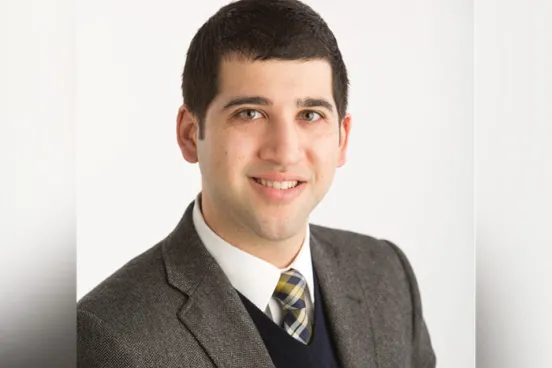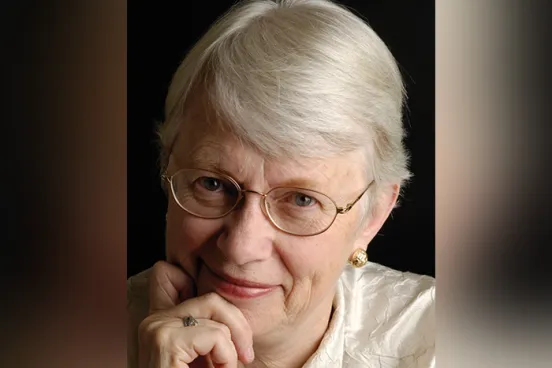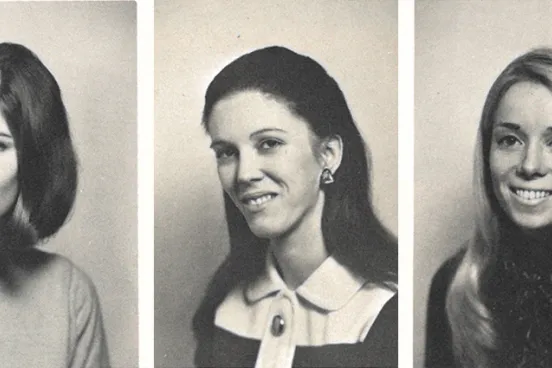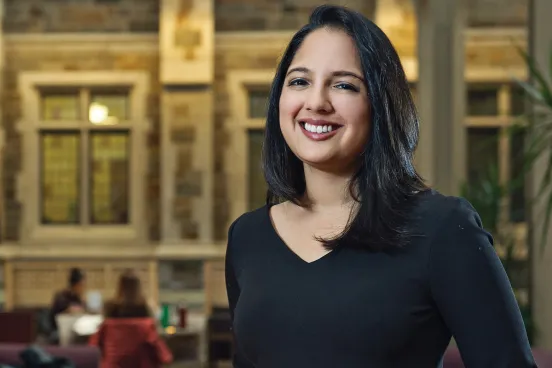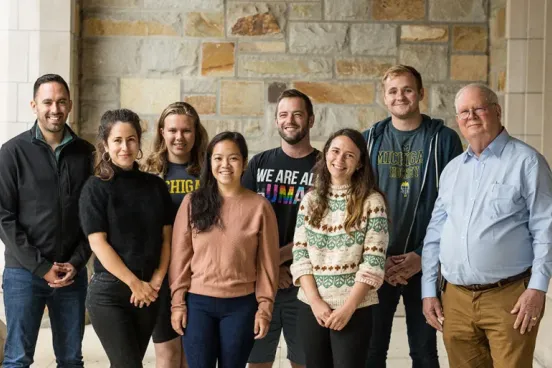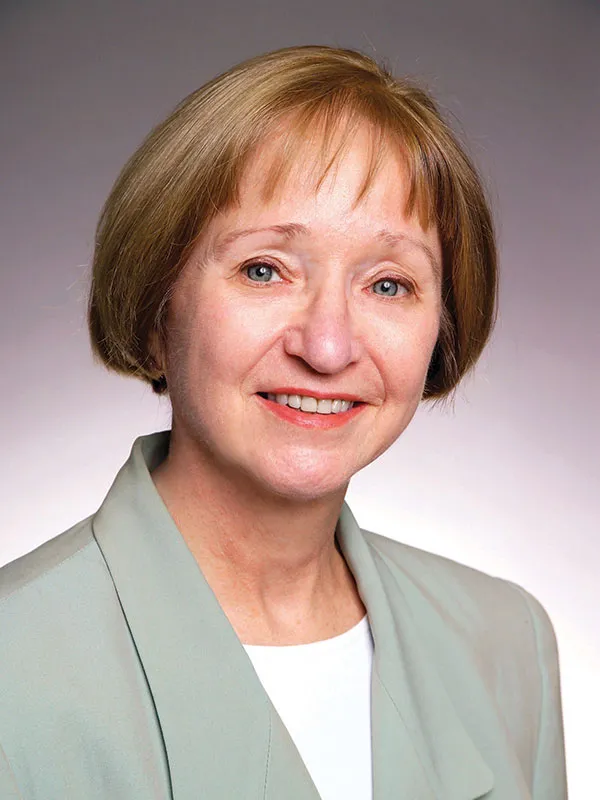
Having grown up in Michigan, it was not only logical but a bit of a family tradition for Nancy Quaife, ’78, to attend Michigan Law.
“My parents instilled in me the value of a good education,” she says. “My father, Donald Quaife, ’36, paved the way for me.” With a significant bequest that she documented recently, Quaife continues to follow in her father’s footsteps by paving the way for the next generation of law students.
Quaife’s estate gift will benefit U-M’s Horace H. Rackham School of Graduate Studies, the Center for the Education of Women, and the Alumni Association. It also will create the Nancy J. Quaife Endowed Law Scholarship and the Nancy J. Quaife Endowed Race, Law, and History Fund.
“Education is the key to understanding our world, to developing into a well-rounded adult, and to obtaining a job that will provide for a better life,” says Quaife. “I want to provide educational opportunities to students in the areas that I studied and to applicants from classes in society that have traditionally been disadvantaged—minorities and women.”
When Quaife attended Michigan Law, women comprised only 27 percent of her class. She was inspired by courses that showed her how lawyers can use the law to build a more equitable society.
“One of my courses was Women and the Law. I saw how a brilliant lawyer, Ruth Bader Ginsburg, could change laws adversely affecting women with an innovative argument. Another course on immigration law opened my eyes to how shabbily the U.S. has treated its immigrants over the years,” says Quaife. “These courses planted the seed of my later interest in community development and fair lending.”
Quaife describes her career as serendipitous. “At the time of my graduation, a female associate had sued a major New York law firm alleging sex discrimination,” says Quaife. “I was lucky to interview with New York law firms looking for qualified female students to presumably counteract the stigma of the lawsuit.”
After working as an associate for Milbank, Tweed, Hadley & McCloy LLP for four years, Quaife was hired by Manufacturers Hanover Trust Company, a predecessor of JPMorgan Chase Bank. She focused on consumer banking law, including the Community Reinvestment Act, the statute requiring banks to reinvest in their communities.
Later, in the early 1980s, she worked on the Equal Credit Opportunity Act and other related statutes to ensure that all applicants for consumer loans received fair treatment.
“Banks have an obligation to reinvest in their communities, and bank regulators examine banks on their performance,” says Quaife, who served as the senior vice president and associate general counsel of JPMorgan Chase Bank for nearly 30 years. “I worked with the various consumer business executives to help ensure that the bank complied with the applicable fair lending laws.”
While she is now enjoying retirement in New York, Quaife continues to be involved in community development via part-time work assisting Citibank with its activities involving the Community Reinvestment Act.
“I wanted to give back to the Law School for enabling me to develop as I have,” says Quaife. “My degree provided me with the opportunity to join a large law firm in New York and, after that, to work for many years at a major financial institution.”
Her bequest will utilize her 401(k) in a way that serves her needs during her lifetime, while holding remaining funds to provide educational opportunities to students upon her death.
“This bequest was the perfect form of gift for me,” says Quaife. “It means I can guarantee support for myself in the coming years, as well as aiding future students.” —JP


